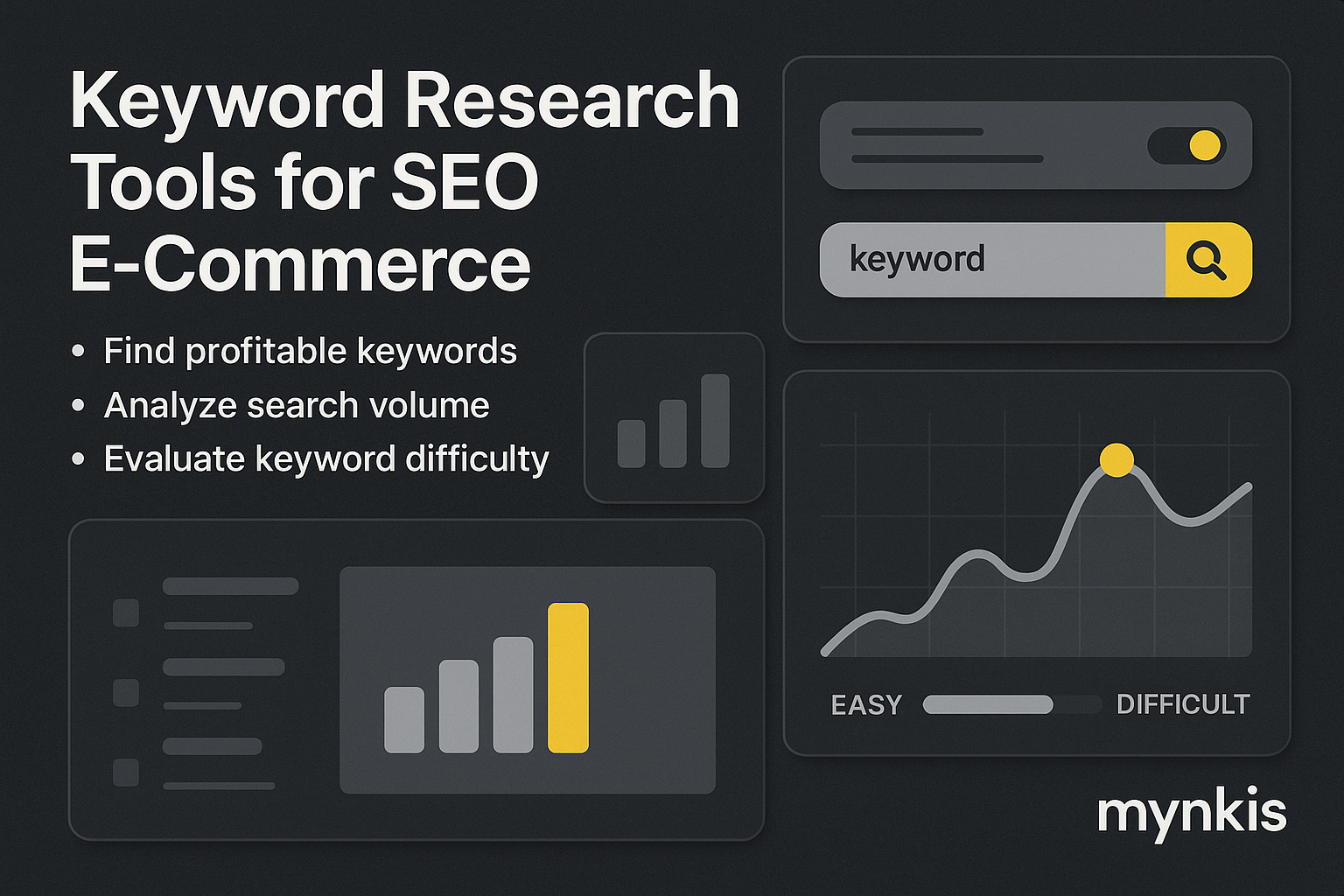Schedule a Demo
SEO isn't just about gaining visibility; it's about cementing your place within the e-commerce universe. In the bustling online marketplace, I've seen how retailers thrive when they leverage the power of keyword research tools to ensure their store front isn't just another shop on the digital corner.
Keyword research dives deep into the psyche of your potential buyers. It's about understanding what they're searching for when they're in the market for what you sell. With tools like Google Keyword Planner, retailers can get a handle on search volumes, competition levels, and possible variations of search queries, which lay the groundwork for informed SEO strategies.
The real value here comes from tailoring your store's content. When every page of your online store resonates with the keywords your audience is using, it's like rolling out a red carpet straight to your front door.
Choosing a keyword research tool isn't a one-size-fits-all deal. There are tons out there, each with its strengths. Ahrefs, SEMrush, and Moz's Keyword Explorer? They each offer different insights. I lean towards SEMrush because it provides a detailed look at keyword metrics alongside competitive analysis. It's a big deal for e-commerce because you're in constant competition with other online stores, so knowing where you stand can be enlightening.
On the more budget-friendly end, Google's Keyword Planner remains a stalwart choice. This tool allows me to discover keywords that aren't just relevant to my store but also feasible in terms of competition. The lower you keep your costs in digital marketing, the more you have to invest back into store optimization and user experience.
To get to grips with effective keyword research, start with your niche. Retail specifics in furniture, apparel, or tech gadgets? Each demands a unique approach to keywords.
Say, in my experience, a client starting a boutique clothing store might consider keywords like 'vintage dresses' or 'bohemian style.' Once you have your primary keywords, tools like SEMrush give deeper information to refine them further.
Don't overlook long-tail keywords; they're your golden tickets to conversion. Phrases like 'affordable sustainable women's fashion' target folks ready to swipe their cards for your racks.
Integrating SEO-driven keywords into your e-commerce store is where the rubber meets the road. It involves crafting product descriptions that seamlessly include your keywords and feeling out where your target audience hangs out, so you can speak their language on the pages that matter most.
Mapping keywords to products or categories within your store ensures every click brings a potential buyer closer to checkout. I've noticed retailers often miss out on exploring keywords at various stages of the buyer's journey, from awareness to decision. Overlaying your keyword strategy like this catalyzes stronger search engine positions, bumping up visibility without those ad dollars.
Retail owners I work with often fret about evolving search trends, and they're right to do so! From voice search to mobile shopping, search habits change, and keyword research tools keep you riding the wave.
The latest Google updates like BERT or Keyword Planner revisions give real insight into these shifts, beckoning e-commerce players to sprint rather than saunter through their SEO tactics. Capturing new, trending keywords nudges your store into future-facing visibility, seemingly hand-in-glove with new technologies like AI.
Striking a perfect balance between SEO functionality and a user-friendly store interface is no cakewalk. As I guide retailers through their digital transformations, I implore them not to cram keywords until the user experience suffers.
Find keyword use that flows as part of natural, engaging content. After all, leading technologies such as Google Search Console can highlight where your SEO could enhance UX — where longer dwell times or lower bounce rates correlate strongly with strategically sprinkled keywords.
The journey with keyword research isn't over once you've smashed your SEO targets. It continually evolves, shaping everything from category page click-through rates to how swiftly your hot drops move from browser's image pane to their digital carts.
From what I've picked up observing relentless industry changes and consulting with leading e-commerce clients, we're in an age where SEO done right adds significantly to bottom lines. What transforms genuine interest into purchases isn't merely being found — it's fulfilling what customers seek by intersecting that need directly in their search journeys through sagacious use of keyword research tools.
